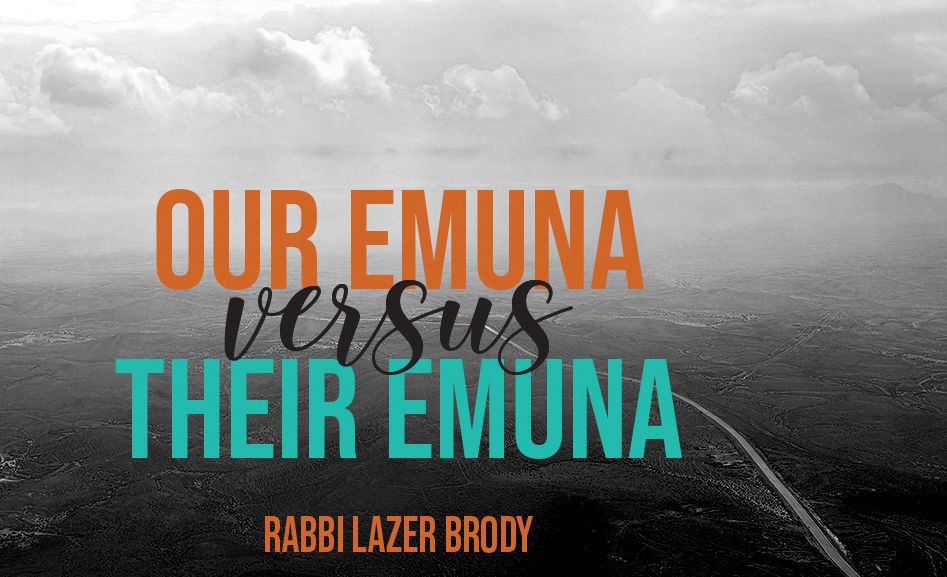
Shlach Lecha: Breaking the Barriers
The generation that received Torah on Mount Sinai were on a lofty spiritual level, yet they lacked the merit of inheriting the Land of Israel. Why?

"Send forth men, if you please…"(Numbers 13:2).
Our sages explain that Hashem said to Moses, "Go ahead and send spies if you so desire, but I'm not commanding you to do so." Hashem obviously knew that the spies would commit a heinous sin in discouraging the Jewish People from entering the Land of Israel. The outcome of their mission would be tragic for both Moses and the Jewish People, so why did Hashem give His consent to send the spies?
Rebbe Nachman of Breslev explains the fundamentally important principle of why we have obstacles in serving Hashem, as well as the virtues of such obstacles (see Likutei Moharan I:66.4): "The obstacle is for the desire, for by way of it, one has greater desire to do a certain thing, since the obstacle is preventing the person from his goal, by way of it his desire increases very much…the more something is desired, the greater the desire must be to attain it. It is therefore befitting for a person to know that when obstacles stand in the way of his accomplishing an act of holiness, he should know and understand from this, that what he wants to do is very desirable and very precious."
Hashem provided the Jewish People every comfort in the desert. Under Hashem's Clouds of Glory, they enjoyed year-round climate control. They ate Heaven-sent bread, the manna, and drank fresh mineral water from Miriam's well that went with them everywhere. Their clothes were always freshly laundered and ironed and their sandals were always in perfect repair. The children's clothes and sandals grew with them. Although the desert is the habitat of snakes and scorpions, not a single one was ever seen in the holy encampment. With such a worry-free life and a guaranteed effortless income, the Jewish People were more than hesitant to enter the "unknown" of the Land of Israel. As it was, they already had bitter memories of the war with Amalek (see the end of Parshat Beshalach) and they were certainly wary of the battles that would await them in the context of conquering the Land of Israel. In addition, the tribal leaders – except for Joshua and Caleb – perceived that remaining in the desert would best serve their personal interests by perpetuating their leadership. The sum of all these conditions led to the spies' slander against the Land of Israel, their disheartening of the Jewish People, and the peoples' all-night whining session on Tisha B'Av, which led to Tisha B'Av becoming a day of crying for posterity. If that's not enough, the entire generation of adults over the age of twenty was sentenced to death in the desert, for they would not merit entering the Land of Israel.
The spies' mission to the Land of Israel lasted for forty days. Since they spoke negatively about the Land and the people believed them and cried all night long, Hashem issued the decree of "a year for a day". They would now have to wander in the desert for forty years before they entered the Land of Israel. What's more, every single one of the adult generation, except for Joshua and Caleb, would die in the desert and consequently be denied the privilege of entering the Land of Israel. This decree of "a year for a day" led to the suicide mission of the maapilim, those who tried to overturn the decree by taking the Land forcefully. Since Hashem wasn't with them in battle, they were all killed by the Canaanites and Amalekites.
The children saw the risk that the maapilim took in attempting to enter the Land of Israel and their parents' sorrow in being denied entrance to the Land, their desire, yearning and sense of dedication were strongly kindled. Despite the fact that the parents spoke in disdain of their children (ibid, 14:31), this would be the generation that would inherit the Land of Israel. Why? All the obstacles that witnessed fanned the flames of their desire. They grew up yearning for the Land of Israel. All the obstacles of the forty-two journeys on the way simply heightened their desire more and more.
In accordance with Rebbe Nachman's principle, the children of the "desert generation" grew with such strong desire that they were able to break the back of any and all obstacles that stood between them and the Land of Israel. This was the generation that entered the Land with Joshua and fought dozens of battles against fierce enemies. In their dedication, they were prepared to face and overcome any obstacle in the world in order to attain their cherished goal of inheriting the Land of Israel, and they did!
Don't be afraid of obstacles; they are gifts from Hashem to fuel our desire and to make us reach higher. That's why our sages tell us (tractate Berachot, 5a), "Hashem gives three wonderful gifts to Israel, all of which are attained through tribulations – the Torah, the Land of Israel and the World to Come." The more something is precious, the greater the obstacles in obtaining it; and the greater the obstacles, the greater the desire. With desire, we break down all the barriers that stand in our way of getting close to Hashem. But like everything else, even the barriers are all for the best!









Tell us what you think!
Thank you for your comment!
It will be published after approval by the Editor.